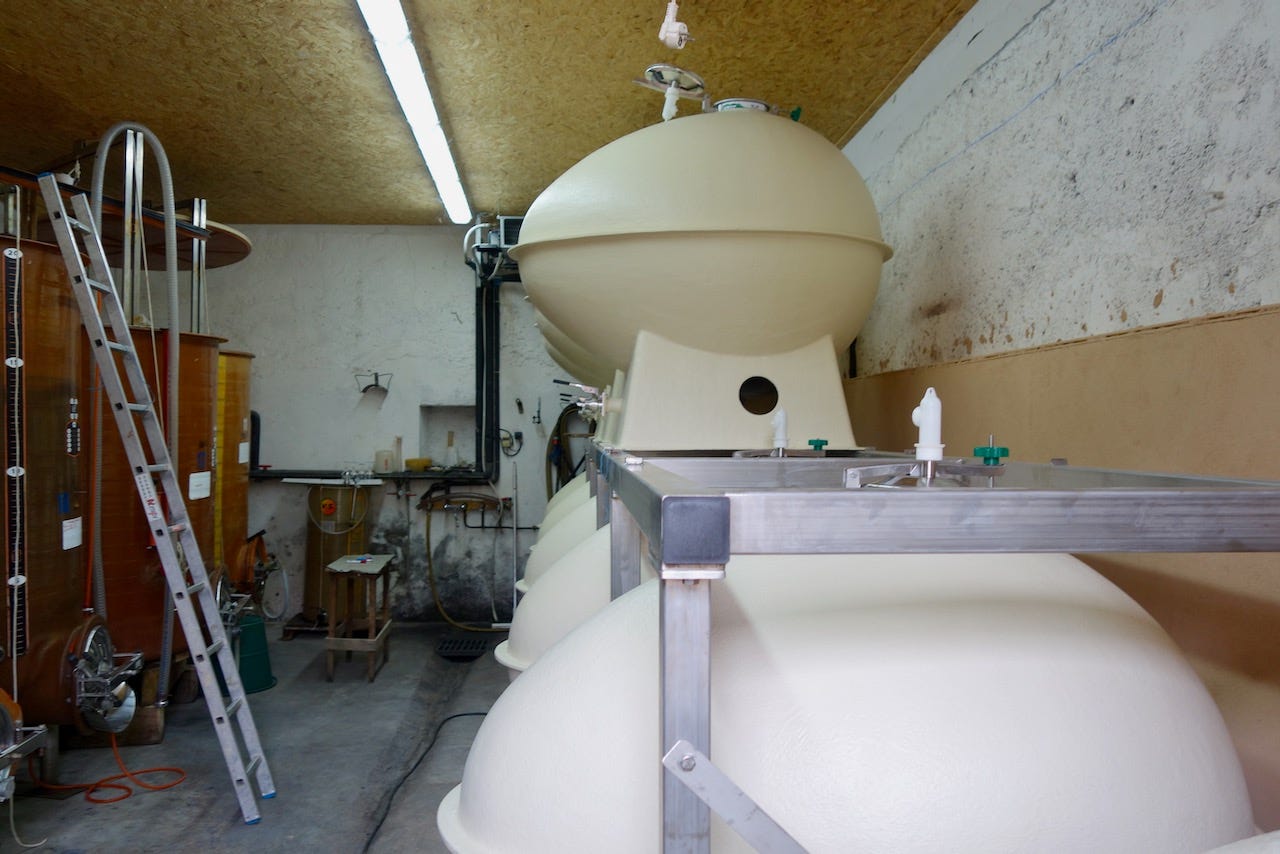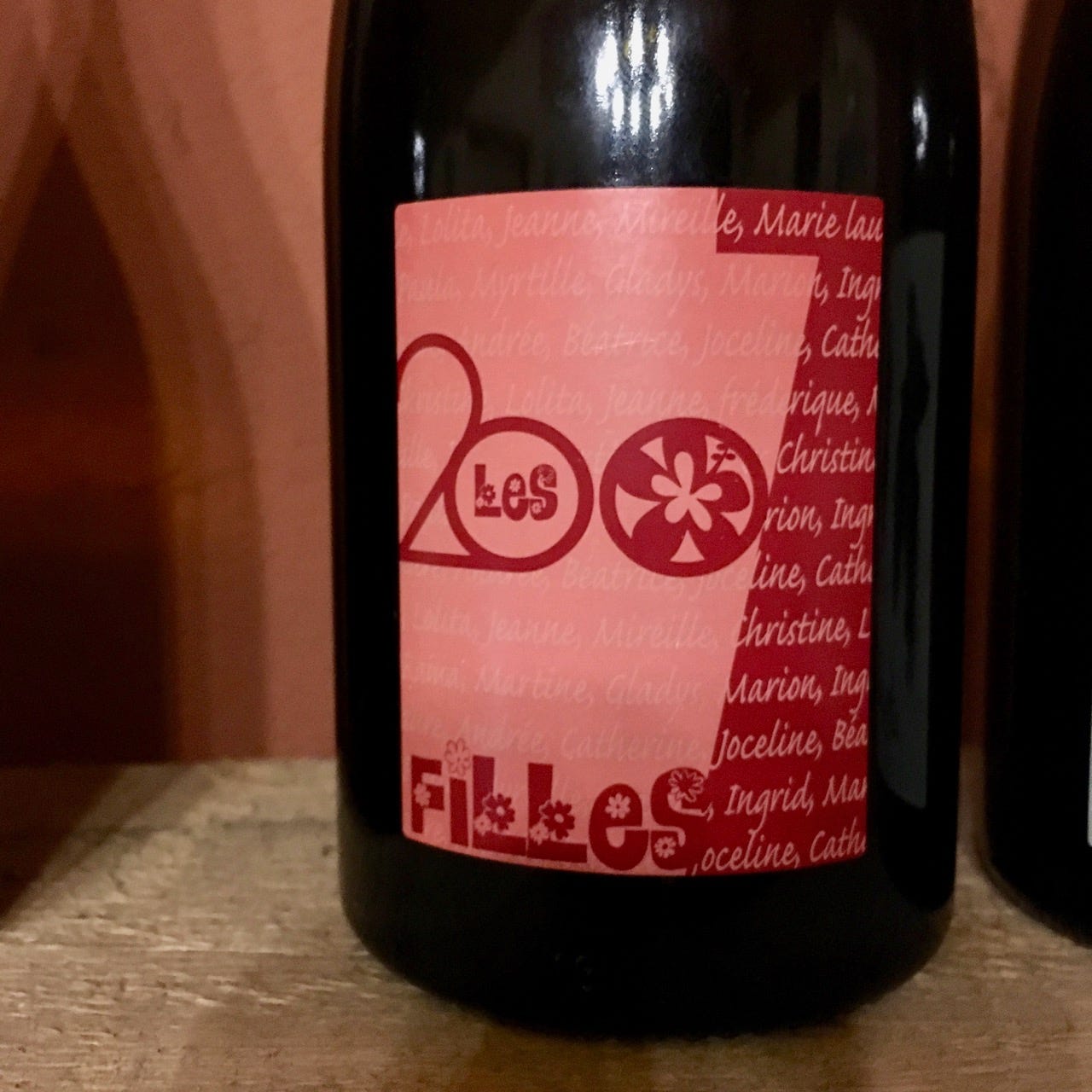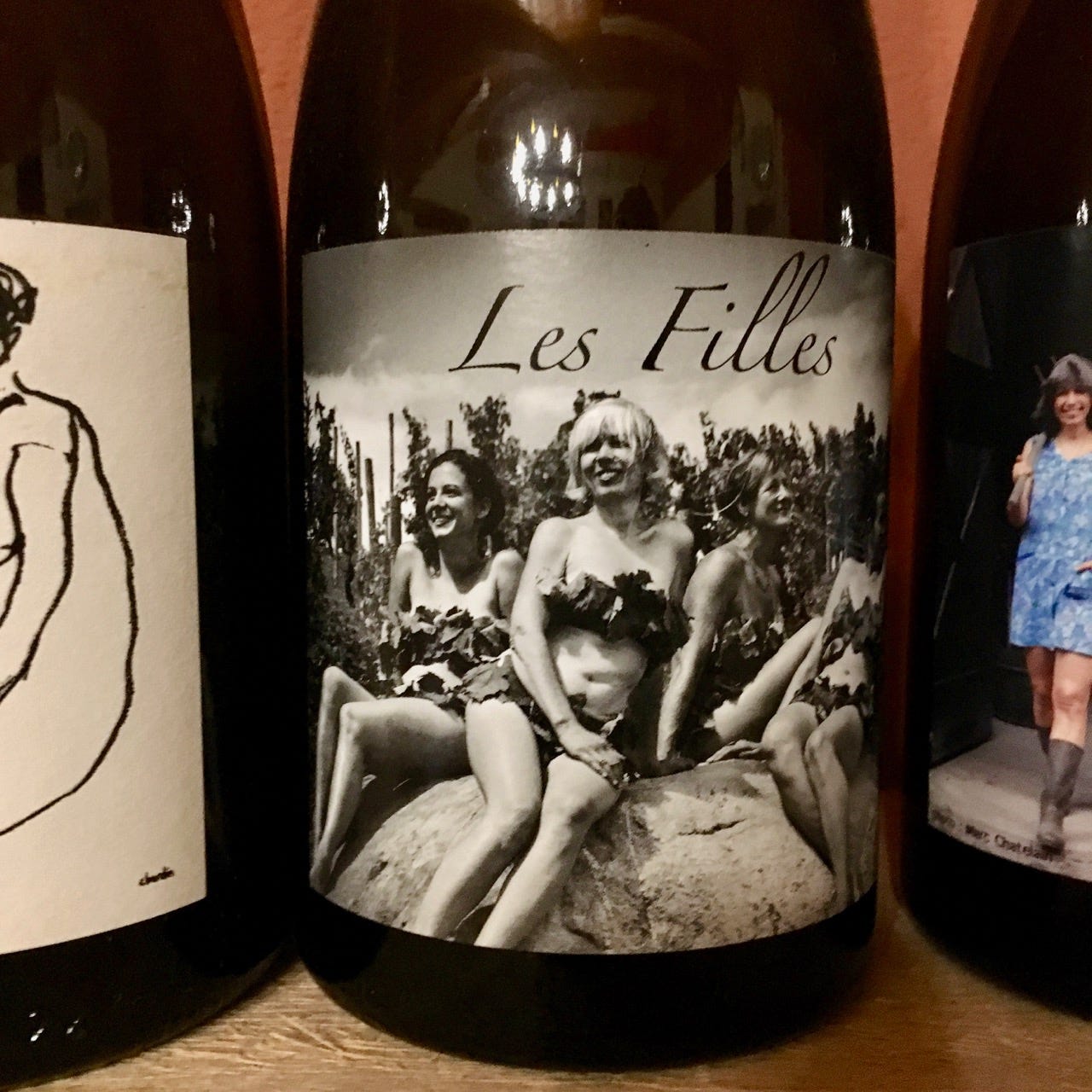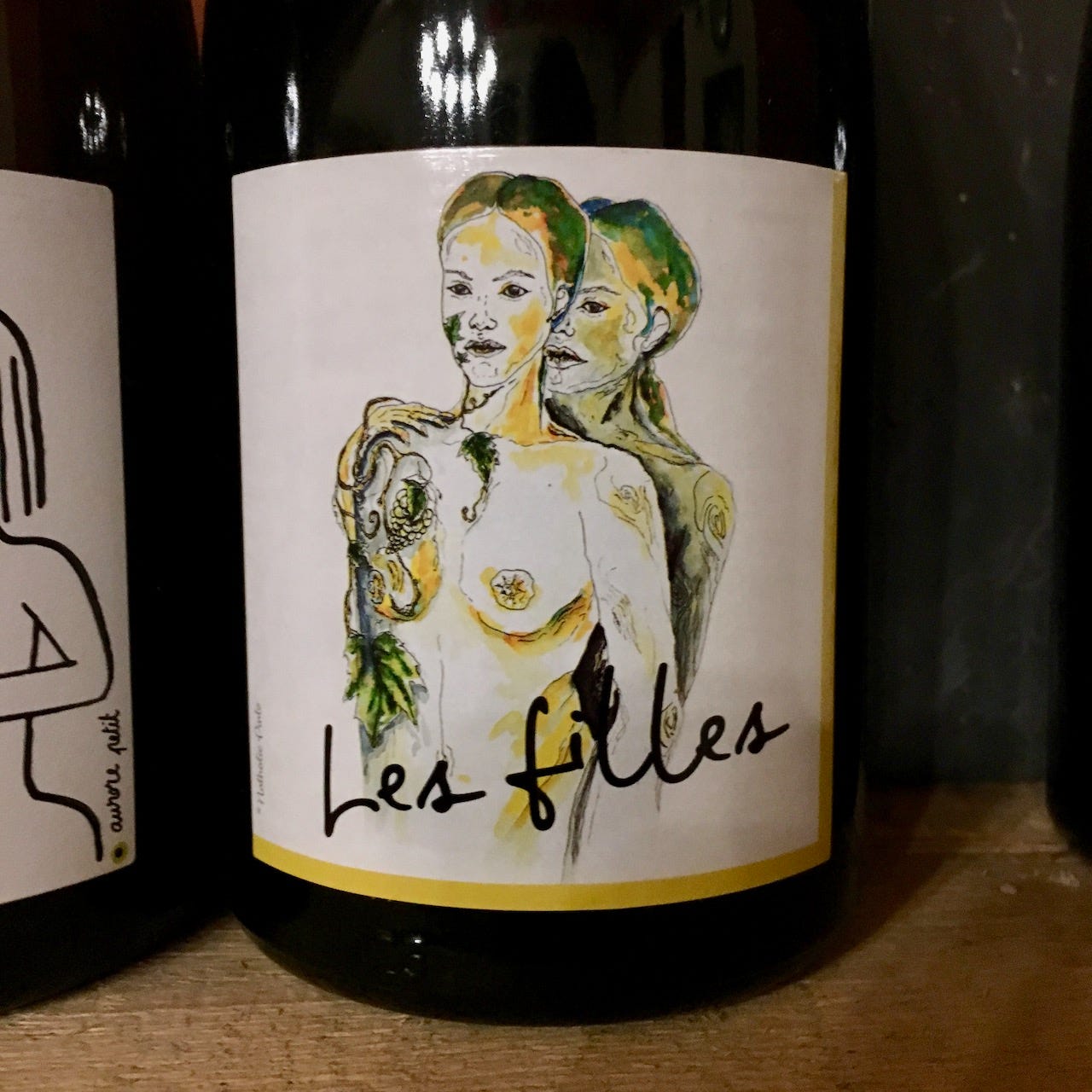11 years of Christine & Gilles Berlioz' Chignin-Bergeron "Les Filles"
"Les Filles" has become vaguely iconic by dint being conserved, empty, on the shelves of wine bars and wine shops across Paris and beyond.
For wine professionals, the temptation to save empty bottles as keepsakes is an occupational hazard. If one begins, it never ends: one's apartment or workplace soon becomes a recycling center. So it seems significant that Savoyard vignerons Christine and Gilles Berlioz' 2011 Chignin-Bergeron "Les Filles" has become vaguely iconic by dint being conserved, empty, on the shelves of wine bars and wine shops across Paris and beyond.
The wine's label changes each year, but in 2011 it bore a black-and-white image of Christine and three comely female vineyard workers or harvesters wearing only grape leaves. It's earthy, blunt, half-sexy, half-goofy, and it caught clients' imaginations.
The wine, from the roussanne grape, derives from a parcel called "Les Filles," which I had the occasion to visit a few weeks ago on a two-day jaunt through Savoie with an importer friend. Savoie is dazzling in the autumn - cascades of turning leaves surround pristine lakes; what one takes for fog prove to be clouds, drifting along the motorways like herds of sheep. Still, nothing prepared me for the beauty of "Les Filles."
It's a patch of south-facing, thin-soiled clay-limestone overlooking a broad valley, bordered abruptly on two sides by adjacent mountains. Further off, the Alps seem to float mid-air on low clouds above the valley. The vines are young, about 21 years old. It is, as Monty Python might say, an impressive "tract of land."
I've been familiar with the Berlioz' wines since first meeting them in 2010 at the "Pet-a-vins" tasting my friend Michel Moulherat hosted back when he ran La Cave de l'Insolite. Since then, they took the unusual choice to retitle their estate, calling it now Domaine Partagé, 'the shared domaine."
"It's philosophical," Gilles explains in the tasting room. "It means that all the people who worked here and who work here, it's those people who made the domaine what it is. Because everyone is responsible for everything."
Gilles professes to preferring work in the vines to work in the cellar. After creating the domaine in 1990, he and Christine began farming organically in 1999. Today they work biodynamically, though without certification. "I'm passionate about vines," he says. "I adore the vines. I'm always in the vines, all day long."
He and Christine farm 4.5ha. This year they sold a bit of roussanne grapes to Auvergne vignerons Aurelien Lefort and Patrick Bouju, as well as to Savoyard peer Jean-Yves Péron. The trio will each produce separate micro-cuvées of orange wine from the grapes, as part of an experiment organized by their characterful Paris agent, Clovis Ochin. (I've tasted two from tank so far - the results are fascinating.)
The Berlioz' cellar work is gentle, minimalist, forgoing long elevage. While not as radically sulfur-free as the winemakers who purchased their roussanne, they remain quite pure, certainly compared to the norm in Savoie. Sulfur doses are very low; most whites are filtered before bottling, while their reds are never filtered.
"Each year we put in less and less sulfur, less and less bentonite, and have less need for filtration," he says. "Because we work well at the pressurage."
Gilles is a believer in sensitive crystallization; following the results of such an analysis, he prefers to ferment mainly in fiberglass, with elevage occuring either in tank or in horizontal fibreglass egg.
Of the effect of the eggs, he says, "It's like we do a constant battonage, it stays in suspension. But you can't leave it in there too long, it can fatigue the wine." The wines are accordingly bottled after Easter. The wines all show an impressive depth and complexity for such a short élevage.
The Jacquère cuvées are muscular, taut, while those from roussanne - including "Les Filles" and an adjacent parcel, "Les Fripons," are lush, languorous, and often contain a surprising degree of residual sugar without it being immediately perceptible. The 2017 "Les Fripons" contained over 6g! Whereas, paradoxically, the 2017 "Les Filles" contains "just" 3.8g, and yet was significantly more opulent, dense with honey, white floral, and apricot tones. (I would adore to taste unfiltered, long-bottle-aged versions of these wines. Sigh.)
Like many other areas of France, the 2018 harvest was hurt by dryness, particularly in the otherwise exuberantly productive mondeuse.
"Especially the young wines had trouble this year," says Gilles. "Overall it was okay, but we have a lower yield. This year we'll make 100HL of wine, on 4.5ha."
The Berlioz' don't keep much stock. But along the wall of the tasting room are displayed - along with current vintages of the other cuvées - bottles of each vintage of "Les Filles," dating back eleven years.
Domaine Partagé - Gilles & Christine Berlioz
Le Viviers
73800 CHIGNIN
FURTHER READING
My old account of the 2010 Pet-a-Vins tasting at La Cave de l'Insolite.


















